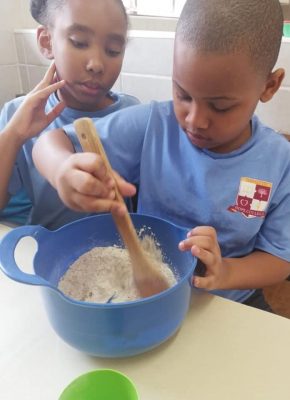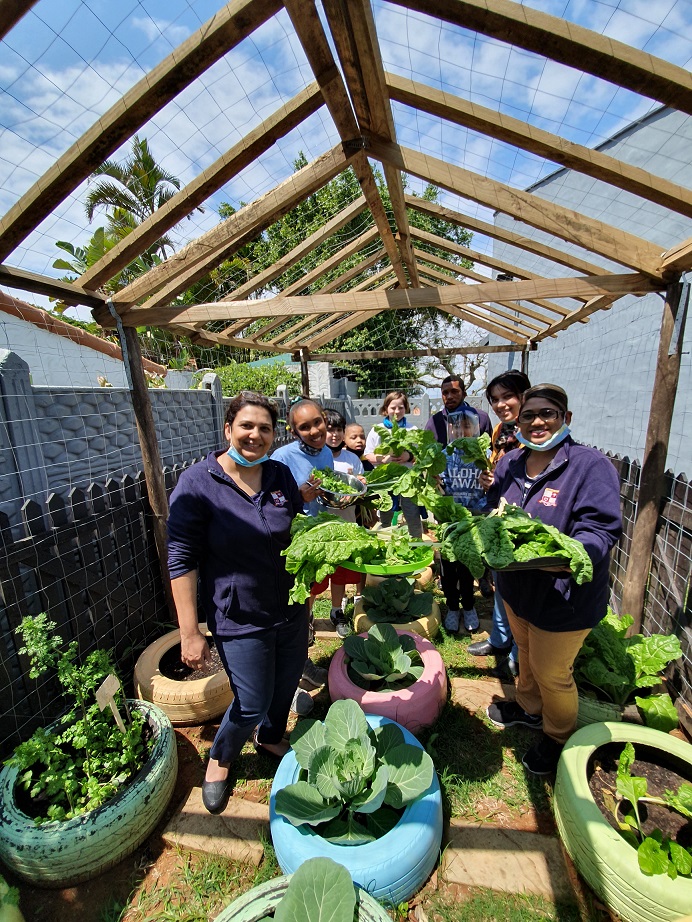The aim of World Autism Awareness Day, on 2 April, is to spread awareness and kindness and promote acceptance. Imbalito Hope College founder Nirasha Dhaniram shares some basic facts about kids and autism that everyone should know.

Nirasha is a psychologist and the founder of the Ballito and Umhlanga-based Imbalito Hope College (IHC) program. IHC is an assessment and therapy centre as well as an educational service provider for children and adolescents with special needs, focusing on autism. Nirasha is also a mother to a child with autism. We asked her to share some basic information about the diagnosis and different levels of autism with us.
“Autism spectrum disorder (ASD) is a neuro-developmental disorder that can cause social, communication and behavioural challenges. It also includes restricted repetitive behaviours, interests and activities,” says Nirasha. “The symptoms of autism are usually present in the early developmental period of childhood and can cause significant impairment in important areas of everyday functioning; this can cause significant strain on families caring for a child with autism.”
LEVELS OF AUTISM
According to Nirasha, the severity levels for autism spectrum disorder are looked at mainly in terms of social communication as well as challenging behaviours. She explains the three main levels of diagnosis. Level 3 severity: this child requires substantial support and, even with the support, the impairments will be very noticeable especially in the areas of verbal and nonverbal social communication. The child will experience extreme behavioural challenges in times of change; Level 2 severity: this child also requires substantial support, without which the deficits cause noticeable impairment; Level 1 severity: this child may require some support.
“Teachers and parents may often use the term ‘high functioning’ (synonymous with a level 1 child) or ‘low functioning’ (similar to a level 3). Children may also be also be referred to as moderately functioning (level 2). It is important to keep in mind that whilst autism might be an incurable disorder, with the correct treatment and interventions, children can move along the spectrum, for example from level 3 to level 2.”
SIGNS AND SYMPTOMS
Nirasha says there are two main categories of symptoms to look out for, should you suspect your child may have autism. The first is social communication and interaction (for example, failing to respond to his/her name, prefers to play alone, doesn’t point or wave by 14 months old, loses language skills or social skills at any age, repeating words and phrases, doesn’t bring objects to others to share interest). The second is patterns of behaviours (for example, performing repetitive movements such as rocking, spinning or hand flapping, activities that could cause self harm such as biting or head banging, develops specific routines or rituals and becomes disturbed at the slightest change, problems with coordination and odd movement patterns such as walking on toes, fascinated with details of an object such as spinning wheels of a car but does not understand the overall purpose or function of the object, unusually sensitive to light, sound or touch, yet may be indifferent to pain or temperature, has specific food preferences or refusing foods with certain texture and doesn’t engage in imitative or make-believe play). “It is important to note that people with autism display the above symptoms in different combinations and that no two persons with autism are alike.”
ABOUT IMBALITO HOPE COLLEGE
 Founded by Nirasha and her husband, Dr Basil Dhaniram after their son Mikhail was diagnosed with autism, Imbalito Hope College (IHC) is an assessment and therapy centre as well as an educational service provider for children and adolescents with special needs.
Founded by Nirasha and her husband, Dr Basil Dhaniram after their son Mikhail was diagnosed with autism, Imbalito Hope College (IHC) is an assessment and therapy centre as well as an educational service provider for children and adolescents with special needs.
The two branches are in Ballito and Umhlanga, and the programme offers tailor made educational and therapy for children from 2 to 21 years of age. IHC incorporates a multidisciplinary, dedicated team of professionals and the main goal and aim at IHC is to focus on a holistic approach in the treatment and education of children with developmental challenges and they cater for children with all levels of autism, as well as children with remedial needs. They also have online academic programs. Understanding the unique challenges each family living with special needs faces, IHC also has a strong support forum called Connect Special Needs as well as a youth vocational programme with focus on baking, gardening and crafting for learners aged 17 and older (the Mikhail D iHope Foundation, named after their son).

Details: 032 586 0200, [email protected], www.connectspecialneeds.co.za,
FB: @imbalitohopecollege


